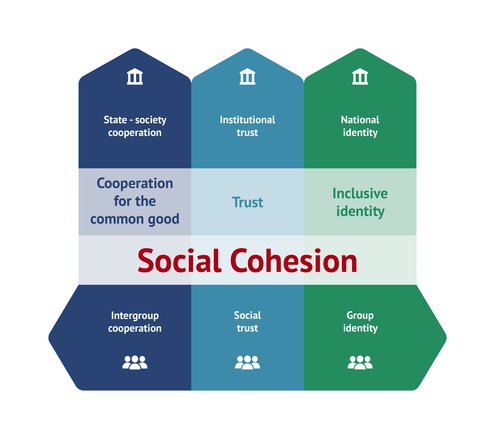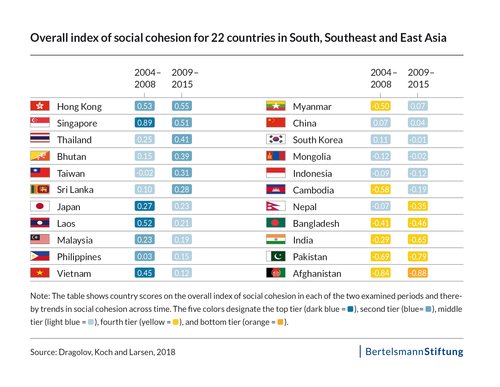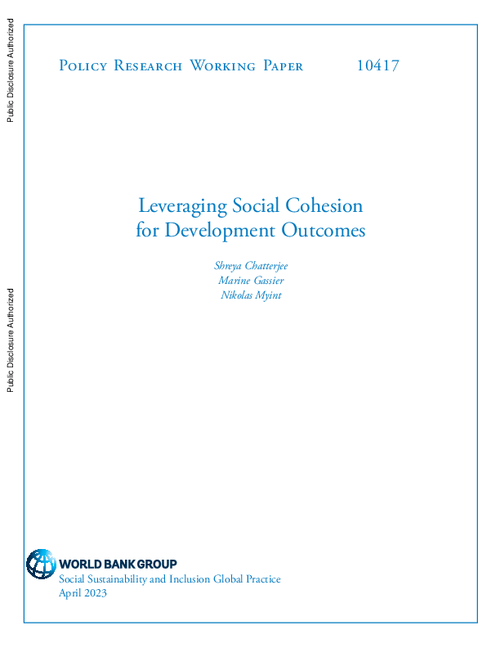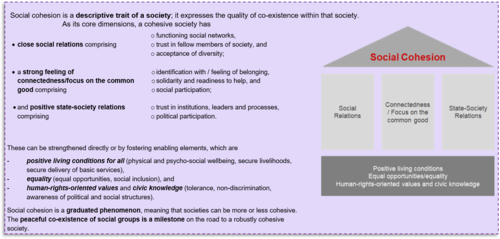The impact of political institutional quality on social cohesion: Evidence from worldwide perspective
Key facts
Shared values
Inequality
Summary
Diversity and socioeconomic deprivation have been widely discussed as determinants of social cohesion. These two factors are considered to be a threat to social cohesion. The existing literature identifies the problem, however, the literature suggesting the solution is very limited. The most important determinant which can cure the problems of social cohesion is the better quality of institutions, however, there is hardly any literature on this aspect. The current study has investigated the impact of political institutional quality on social cohesion by employing the fixed-effect model for estimation. The analysis is conducted for 135 countries, using five-year average panel data. The results suggest that political institutional quality augments social cohesion, gender equality, and per capita income also augment social cohesion. Ethnic diversity, income inequality, and globalization are a threat to social cohesion. Moreover, the threat to social cohesion is greater when there are low political institutional quality and high ethnic diversity, and income inequality as compared to a situation where there are high political institutional quality and low ethnic diversity, and income inequality. The results further suggest that the harmful effects of ethnic diversity, inequality, and globalization can be, not only overcome by institutional quality but can also be put to use to enhance social cohesion.




